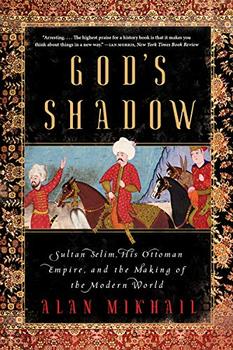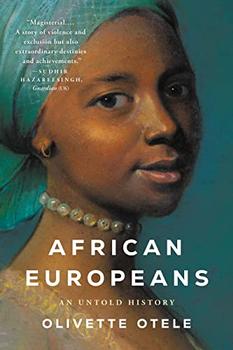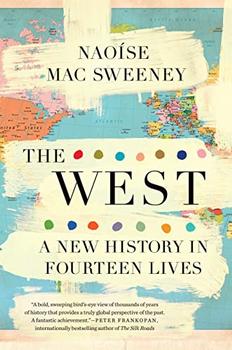Summary | Excerpt | Reviews | Beyond the book | Read-Alikes | Genres & Themes | Author Bio

Sultan Selim, His Ottoman Empire, and the Making of the Modern World
by Alan MikhailAn explosive global history that redefines the historical origins of the modern world through the life of Sultan Selim I and his Ottoman Empire.
Long neglected in world history, the Ottoman Empire was a hub of intellectual fervor, geopolitical power, and enlightened pluralistic rule. At the height of their authority in the sixteenth century, the Ottomans, with extraordinary military dominance and unparalleled monopolies over trade routes, controlled more territory and ruled over more people than any world power, forcing Europeans out of the Mediterranean and to the New World.
Yet, despite its towering influence and centrality to the rise of our modern world, the Ottoman Empire's history has for centuries been distorted, misrepresented, and even suppressed in the West. Now Alan Mikhail presents a vitally needed recasting of Ottoman history, retelling the story of the Ottoman conquest of the world through the dramatic biography of Sultan Selim I (1470–1520).
Born to a concubine, and the fourth of his sultan father's ten sons, Selim was never meant to inherit the throne. With personal charisma and military prowess―as well as the guidance of his remarkably gifted mother, Gülbahar―Selim claimed power over the empire in 1512 and, through ruthless ambition, nearly tripled the territory under Ottoman control, building a governing structure that lasted into the twentieth century. At the same time, Selim―known by his subjects as "God's Shadow on Earth"―fostered religious diversity, welcoming Jews among other minority populations into the empire; encouraged learning and philosophy; and penned his own verse.
Drawing on previously unexamined sources from multiple languages, and with original maps and stunning illustrations, Mikhail's game-changing account "challenges readers to recalibrate their sense of history" (Leslie Peirce), adroitly using Selim's life to upend prevailing shibboleths about Islamic history and jingoistic "rise of the West" theories that have held sway for decades. Whether recasting Christopher Columbus's voyages to the "Americas" as a bumbling attempt to slay Muslims or showing how the Ottomans allowed slaves to become the elite of society while Christian states at the very same time waged the horrors of the transatlantic slave trade, God's Shadow radically reshapes our understanding of the importance of Selim's Ottoman Empire in the history of the modern world.
16 pages of color illustrations; 40 black-and-white illustrations
Mikhail succeeds in capturing the tension and power struggles that marked Selim's accession, but unfortunately misses the opportunity to explain how Orientalism, with its depictions of Muslims and "the East" as inherently illogical, exotic and sinful, was directly related to the existential fears of the Ottomans. Nevertheless, God's Shadow is a refreshing corrective to the literary and historical traditions that portray the Ottomans as weak and inconsequential...continued
Full Review
 (936 words)
(936 words)
(Reviewed by Rose Rankin).
 When we think about royal succession, we typically think of princes, and European history is rife with dramatic steps that monarchs took to ensure they had a male heir. But this devotion to primogeniture, or the succession of the oldest son, was not universal in the early modern world. So, while Henry VIII was upending his entire kingdom to produce a son, on the other side of Europe the Ottoman Empire had numerous male heirs in nearly every generation, thanks to its custom of concubinage.
When we think about royal succession, we typically think of princes, and European history is rife with dramatic steps that monarchs took to ensure they had a male heir. But this devotion to primogeniture, or the succession of the oldest son, was not universal in the early modern world. So, while Henry VIII was upending his entire kingdom to produce a son, on the other side of Europe the Ottoman Empire had numerous male heirs in nearly every generation, thanks to its custom of concubinage.
With one notable exception, as we will see, Ottoman sultans did not marry; instead they had a harem, consisting of slave women who could become their concubines. Long fetishized in the West, the harem was actually "…by definition a sanctuary or ...

If you liked God's Shadow, try these:

by Olivette Otele
Published 2023
A dazzling history of Africans in Europe, revealing their unacknowledged role in shaping the continent.

by Naoíse Mac Sweeney
Published 2023
Prize-winning historian Naoíse Mac Sweeney delivers a captivating exploration of how "Western Civilization" - the concept of a single cultural inheritance extending from ancient Greece to modern times - is a powerful figment of our collective imagination. An urgently needed emergent voice in big history, she offers a bold new account of ...